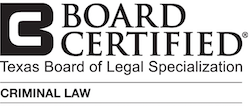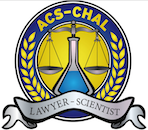Trial Fees
From the very beginning of a criminal case, I try to be very clear that a "trial fee" may be incurred if this is the best option we decide to pursue. A trial fee is always associated with any criminal case and is usually communicated to clients by me from the beginning at the initial meeting, or as soon as possible given other circumstances involved. This bifurcated payment structure actually results in a cheaper overall cost to clients in relation to the time spent devoted to the case.
I try to convey to all prospective clients that if any other attorney they speak with about possible representation before hiring me DOES NOT discuss with them a trial fee in the initial consultation, then they should probably NOT hire that attorney. Hopefully the following can shed some light as to what a trial fee is and why it is charged.
Three Different "Trial Fee" Approaches
The reality is that not all criminal cases go to trial. Some can be resolved through alternate dispositions. If this can be done, I will try my best to employ this option if it is at all viable. Carl believes, after personally observing how other attorneys approach the practice of criminal law, that there are three different mindsets regarding trial fees.
Approach #1:
Some attorneys will do everything in their power to avoid going to trial, either by judge or jury, like the plague. They will try everything they can to convince their client to plea. This may be done for a variety of reasons. The main reason, likely, is because it is easier and more efficient to "move" a case along rather than go through the steps that are involved with a trial. Trials are time-consuming, energy draining, and they can be very adversarial. They can be compared, in many respects, to a schoolyard fight. Instead of the conflict taking place in the schoolyard, however, it occurs in a courtroom in front of a judge.
Many attorneys may also not be very confident in their ability to advocate an argument in front of a jury. It’s not an easy thing to do, and many I have observed are frightened by the mere prospect of it. There are no other aspects within the legal system where an attorney will be scrutinized so closely as they are when presenting an argument to a judge or jury. The trial process can be stressful and can be very fatiguing. It is vitally important, therefore, for the attorney to be thoroughly prepared and ready to give the best presentation possible.
Most of the attorneys who do not charge a trial fee may try and avoid discussing a "trial fee" at all cost when a client first signs a representation agreement. They may also say that the fee includes "everything", including whether the case proceeds to trial. However, because most of their cases do not get anywhere remotely close to a jury trial, 95% of the time the fee they charge clients is too high because it includes this "built-in" trial fee. In the event you "demand" a trial from these attorneys, they may do it, albeit begrudgingly.
Usually because these attorneys are not getting paid anything extra to go to trial, they will likely discourage you from going to trial anyway they can, even if it is in your best interest to do so. In the event you do decide you wish to go to trial, they will not be as motivated to spend the extra time to adequately prepare your case for trial, as it should be.
If an attorney does charge a separate trial fee, it should be a very honest and transparent fee arrangement. Ideally you should always know the amount of the trial fee before signing an attorney representation agreement, and definitely before the decision is made to go to trial. If an attorney does not discuss with a potential client the necessity for charging a trial fee, it usually means they have no intention of actually trying the case to a judge or jury. If this is the mindset from the beginning of the case, I am a firm believer that it is impossible to represent a client as effectively as possible.
Some attorneys would rather not go through this process, no matter what fee may be paid, and they simply try their absolute best to avoid a trial.
Approach #2:
I have also observed attorneys who love trials because they feel they are excellent opportunities for a "trial fee" to be earned. Going to trial can provide an excellent resource for an unscrupulous attorney just looking to "milk" a case financially for all it’s worth. I would be remiss in saying that all attorneys that may have this mindset do so ONLY for monetary reasons. Many of these attorneys likely do so because they genuinely believe trial is an advisable option, and view the "trial fee" as an added bonus.
To give you an example, I once witnessed a very famous criminal defense attorney try a DWI case to a jury. The facts of the case were absolutely terrible in almost every respect. The jury rendered a "Guilty" verdict literally in less than 5 minutes, maybe quicker. After the trial, I asked the judge where the case was tried what he thought of the proceeding. I remember he remarked, "I couldn’t have personally in good conscious actually have tried that case to a jury." I happened to have heard how much the attorney had been paid on the case to go to trial, and I knew he may have had "other" motives for being so adamant to have a jury trial. Simply put, it was the only way for him to justify earning such a ridiculously high fee.
*I will note that the fee earned in this particular case was the highest I’d ever heard any attorney charge on a DWI case.
This being said, I am a firm believer that if someone wants to go to trial, they have the absolute right to do so. Some cases may have ridiculously bad facts, but for differing reasons the accused may have their reasons for why they need to go to trial. The reality is that anything can happen at a trial, and searching for a "needle in a haystack" may be the only option they have.
I am of the personal opinion, however, that attorneys that fall into this category do not have their client’s best interest in mind. A trial should never be set on a jury docket simply so the attorney can have the opportunity to earn a higher fee. I have personally witness, unfortunately, various attorneys who do so ONLY for this reason. The client is usually unaware of why the attorney is employing this option, and they trust them and hope they are honest when advising this is the best option. It is unethical, in my opinion, to advise a client to go to trial ONLY to earn a trial fee. A trial should be the option pursued after a thorough and complete understanding of the facts. Most important, it should be done with the client’s interest in mind and with the client’s complete and informed consent.
Approach #3:
I can truly say that I do my best to always fall into a 3rd category. I do charge a trial fee on any given criminal case if this is the route that has to be employed. The reasons for doing so are listed below. I can honestly say, however, that I will never advise a client to go to trial SOLELY for the purpose of earning a trial fee.
I try my absolute best to give my honest opinion on the various risks and rewards with going to trial versus taking a negotiated pre-trial disposition. Most of the time my opinion is based on the facts of the case, and my belief in the likelihood of the case being received well either by a judge or a jury. There are a variety of reasons why a trial could be in the best interest of a client. Often the facts are such that the defendant will have a very high likelihood of achieving success. Often the punishment recommendation by the state might make the risk for going to trial minimal, so there is very little to lose. In fact, often it is the case where the punishment might actually get better following a jury trial.
I try my best to analyze each case to the best of my ability given my experience, focus, and devotion to the field of criminal defense. I take my job and role as a counselor seriously, and I try to give the best advice I can. I try and heavily weigh the pros and cons of each case to determine truly whether setting something for trial is the best possible option. I can truthfully say that I do this 100% with my client’s interest in mind.
Trial Fee Structure
The initial fee usually includes my representation through all court appearances, any possible pre-trial hearings, several meetings with you, and a complete review of all evidence pertaining to the case. If after reviewing the discovery on the case, I always try to schedule a meeting with my clients to go over all options in play. If after taking everything into consideration a jury trial is determined the route that will be employed, the trial fee will then be charged.
Why a Trial Fee?
I use a bifurcated structure for payments to try and charge everyone a fair rate based upon the time it takes to resolve a case. As stated before, trials can be incredibly time-consuming and resource intensive.
The trial itself could take anywhere from 2 days to a week (perhaps longer if the facts are more complex). There are also usually multiple trial settings that occur before any given matter will be reached and heard before the court. The court usually sets which trial will be heard and when. The other cases not reached on a specific date will then be reset for another date to possibly be heard in the future.
There is a possibility that any given case is also designated to be "on-call" should the others not actually proceed to trial. Because of this, an attorney will have to block out all of these time periods to appear in the event the case is reached on that date. It is incredibly important for the attorney to be prepared and ready to go to trial at all EVERY setting. Obviously, this will require full attention of the attorney, as he cannot represent any other clients during this time frame. Aside from this, a large amount of time should also be devoted to preparation.
Abraham Lincoln once said:
"If you give me six hours to chop down a tree, I will spend the first four sharpening the axe."
This same approach should be taken before going to trial. It is not advisable to proceed with a jury trial without adequate and thorough preparation. The reality of a trial, either by judge or jury, is the preparation in getting ready is always a considerable undertaking that requires an immense amount of time and energy. The trial fee, therefore, contemplates the extra time spent devoted to preparation, researching, scheduling the time associated with always being "ready" for trial, and also the time actually spent in trial.
Trial Fee Charged
In all of the cases I have worked, the trial fee itself is usually an incredible bargain. If instead it was charged hourly based on the time spent given all the factors above, the cost would undoubtedly be considerably more expensive. Given all of the aforementioned factors, it is impossible to fully prepare to present a case to a jury absent a trial fee being paid. Every attempt will be made for an alternate disposition, especially upon request by the client. It should always be kept in mind that in certain circumstances a case should be set for trial. Often setting something for trial is the best option to give someone the best possibility of obtaining a successful result for their case.
Every client I have the privilege to represent can rest assured knowing that I will NOT avoid a jury trial because I feel I lack the ability for achieving success advocating on your behalf. Likewise, they can also know that I will never urge a client to pursue trial as an option simply because I would like to earn a higher fee for doing so. Instead, you will have my total devotion and commitment that I will only set something for trial after complete and thorough deliberation on whether this is indeed the best option to pursue. Above all else, I pledge that I will ONLY do so with YOUR interests in mind, and NOT my own.






















